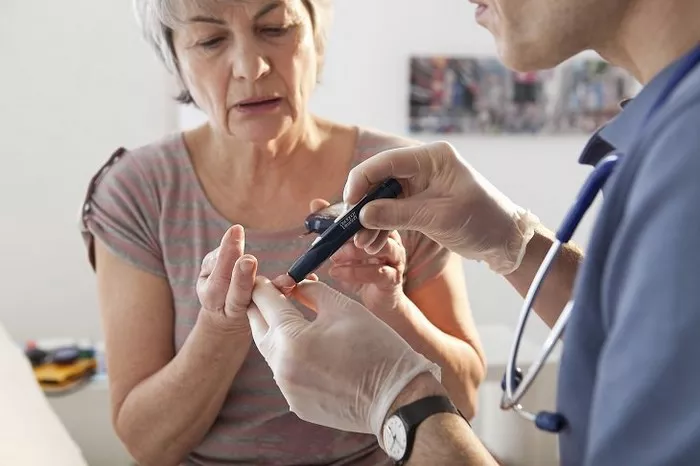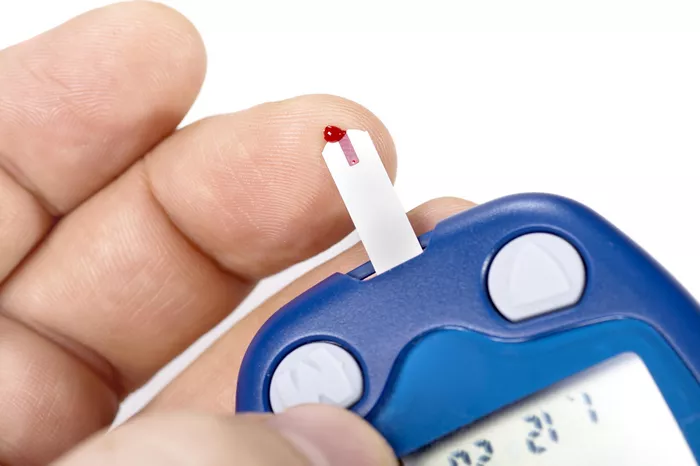Profound hypoglycemia refers to severely low blood sugar levels, typically defined as blood glucose levels below 54 mg/dL (3.0 mmol/L). It is a medical emergency that requires prompt intervention to prevent serious complications such as hypoglycemic shock. Hypoglycemia can occur in individuals with diabetes who use insulin or certain medications to lower blood sugar levels. When blood sugar levels drop too low, the body is unable to function properly, leading to various physiological effects.
Physiological Effects of Low Blood Sugar Levels
Low blood sugar levels can have significant physiological effects on the body. Glucose is the primary source of energy for cells, particularly in the brain, which relies heavily on glucose for normal functioning. When blood sugar levels drop, the brain is deprived of its main energy source, leading to symptoms such as confusion, dizziness, rapid heartbeat, and loss of consciousness. Additionally, low blood sugar levels can impair cognitive function, coordination, and judgment, making it dangerous to perform everyday tasks.
Types of Shock
Shock is a life-threatening medical condition characterized by inadequate blood flow to vital organs, resulting in tissue damage and organ dysfunction. There are several types of shock, including hypovolemic shock, cardiogenic shock, distributive shock, and obstructive shock. Each type of shock has different causes and mechanisms, but they all share the common feature of inadequate tissue perfusion.
Hypoglycemic shock is a type of distributive shock that occurs when severe hypoglycemia leads to widespread vasodilation and decreased blood flow to vital organs. This can result in organ dysfunction and, if left untreated, can be life-threatening. Hypoglycemic shock is most commonly seen in individuals with diabetes who experience profound drops in blood sugar levels, but it can also occur in other conditions or situations where blood sugar levels are severely low.
Physiological Mechanisms
Hypoglycemia can lead to shock through several mechanisms. Firstly, low blood sugar levels disrupt cellular metabolism, impairing the production of adenosine triphosphate (ATP), the primary energy currency of cells. This can lead to cellular dysfunction and organ failure. Additionally, hypoglycemia triggers the release of stress hormones such as adrenaline and cortisol, which can cause vasodilation and decrease blood pressure, further exacerbating tissue hypoperfusion.
Symptoms and Signs of Hypoglycemic Shock
Symptoms of hypoglycemic shock may include confusion, dizziness, rapid heartbeat, sweating, pale skin, tremors, and loss of consciousness. It is essential to recognize these symptoms promptly and take appropriate action to prevent complications. If left untreated, hypoglycemic shock can progress rapidly and lead to coma or death.
Emergency Response
In case of hypoglycemic shock, immediate intervention is crucial. The first step is to administer glucose to raise blood sugar levels quickly. This can be done by consuming fast-acting carbohydrates such as fruit juice, glucose tablets, or candy. If the individual is unconscious or unable to swallow, intravenous glucose may be administered by emergency medical personnel. It is also essential to call for emergency medical assistance to ensure proper evaluation and treatment.
Treatment and Management
Treatment of hypoglycemia involves restoring blood sugar levels to normal range and preventing recurrence. This may include adjusting medication doses, monitoring blood sugar levels closely, and making dietary and lifestyle modifications. For individuals at risk of severe hypoglycemia, glucagon emergency kits may be prescribed for use in case of emergency.
Risk Factors and Prevention
Several factors increase the risk of profound hypoglycemia, including insulin or certain medication use, inadequate carbohydrate intake, excessive alcohol consumption, and strenuous physical activity. To prevent hypoglycemic shock, it is essential to monitor blood sugar levels regularly, follow a balanced diet, adhere to medication regimens, and take appropriate precautions during physical activity or other situations that may increase the risk of hypoglycemia.
Case Studies and Research
Recent research has highlighted the importance of early recognition and intervention in preventing complications of hypoglycemia, including hypoglycemic shock. A study published in the Journal of Diabetes Research found that prompt administration of glucose in individuals with severe hypoglycemia reduced the risk of adverse outcomes and improved overall prognosis. Additionally, ongoing research is exploring new treatment strategies and preventive measures for hypoglycemia and its associated complications.
Conclusion
In conclusion, profound hypoglycemia can lead to hypoglycemic shock, a life-threatening condition characterized by inadequate tissue perfusion and organ dysfunction. Understanding the link between hypoglycemia and shock, recognizing the symptoms promptly, and taking appropriate action are essential for preventing complications and ensuring optimal outcomes. By following proper management strategies, including timely glucose administration and preventive measures, individuals with diabetes can reduce the risk of hypoglycemic shock and improve their overall quality of life.
Related Topics:



























